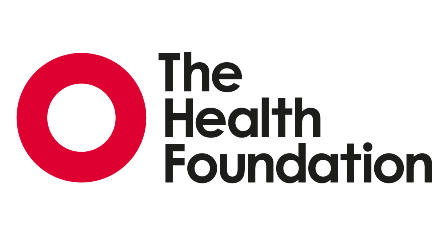
The transition to adulthood can look like a cliff edge. Matt Jordan, who works on the Health Foundation’s Young people’s future health inquiry, sets out the conditions that can make all the difference – between falling and jumping in
Growing up and losing the structure and security we may take for granted as teenagers is always going to be hard. Carving out lives of our own comes with equal measures of excitement and fear, a journey shaped by trial and error. But what of the young people that don’t have the luxury to fail? Where the balance is shifted towards anxiety and fear; where adulthood is something thrust upon the young person – a cliff edge they are neither practically nor emotionally prepared for?
Identifying useful assets
The Health Foundation’s Young people’s future health inquiry has spent the last two years exploring how young people between the ages of 12 and 24 are being prepared for adulthood, and how their experiences at this critical time may impact on their future health. In Listening to our future we presented the findings of our work with young people across the UK where we asked what had helped or hindered them in their transitions into adulthood. In the report, we identify four “assets” that had the strongest influence on their journey to independence:
- Appropriate skills and qualifications: the academic or technical qualifications needed to pursue their preferred career.
- Personal connections: confidence in themselves, along with access to social networks or mentors able to offer advice and guidance on navigating the adult world.
- Financial and practical support: direct financial support from parents, e.g. being able to live rent-free in the family home, as well as practical assistance such as help with childcare.
- Emotional support: having someone to talk to and be open and honest with, who supports their goals in life. This could include parents, partners and friends as well as mentors.
Every young person moves into adulthood with a different combination of these assets, and they will influence the extent to which they are able to find a place to call home, secure and rewarding work, and supportive relationships – the key foundations of a healthy life. Additionally, opportunities to build these assets and translate them into the markers of adulthood will be shaped by the place in which a young person grows up and the structural factors at play, such as the local job market.
A young person growing up in an environment where they are able to build all four “assets” is more likely to be in a strong position in their early adult years (and beyond). They have been able to define career goals, acquire the necessary skills and qualifications, and access the personal connections providing advice and opportunities to enter their chosen field. Furthermore, they have been supported financially, practically and emotionally in their journey. This does not guarantee health and happiness – indeed we found young people in this group were likely to experience anxiety due to the great pressure they placed on themselves to achieve – but they are less likely to experience a cliff edge in their transition. And if they do, there’s more than likely a safety net in place to catch them.
Teetering on the edge
Now consider the young person who has had a negative experience of school and struggled to acquire the qualifications they need to access further education or employment. And has no one they can talk to about their aspirations, who can advise and shape decisions about what they might be able to do next. Who finishes school and has nothing to move on to. All of a sudden, the young person stands on a precipice and an undefined period of instability and insecurity may follow, their journey to independence much less clear.
The NHS Long Term Plan acknowledged that the 16–18 period is a time of important transition where young people are more susceptible to mental illness, and there are plans to extend provision to the age of 25 to avoid the possible cliff edge that young people may experience when they reach 18 and are no longer be able to access child and adolescent mental health services (CAMHS). This is a welcome change, helping to avoid the cliff edge that young people may face in the treatment of mental illness.
The Health Foundation also would like to see a wider acknowledgement outside of the NHS of the challenges that young people face at this age in other areas of their lives. This goes beyond mental illness; we want to get to the root of the causes of the causes, the social determinants, of ill health. If we can offer young people individualised support to define their goals, advise them on the skills and qualifications required, and support them on this journey, they won’t have to fall into adulthood, they’ll jump in. Empowering young people in this way will be of benefit to them now, in the future, and to society as a whole.
